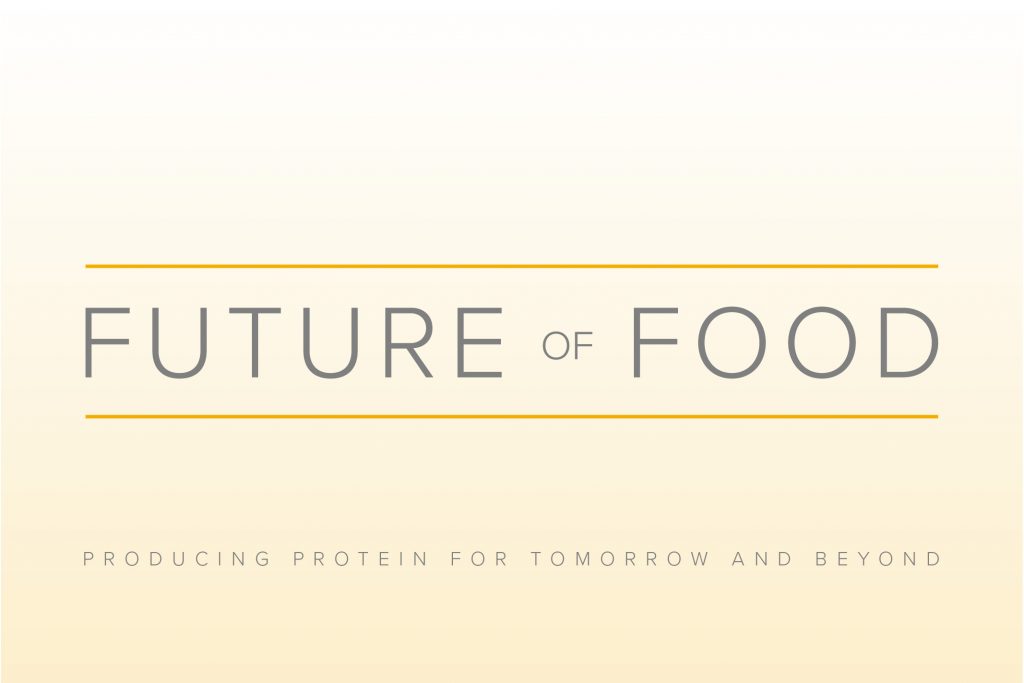Earlier this year, team members began coming together for virtual discussions on how Tyson Foods will provide protein for the future and beyond in a new video series called Future of Food Roundtables. The monthly series focuses on topics crucial to Tyson Foods and our industry, like crisis response, innovation, and women in tech. The most recent episode highlighted an important topic not only here at Tyson, but also across the world: sustainability.
“As one of the world’s largest food companies, we have a responsibility to help build a more sustainable food system,” said moderator Hli Yang, our international communications lead. “Sustainability is not a one-and-done thing. It’s something we have to continue working on and can never stop doing.”
Panelists for the discussion included Leigh Ann Johnston, director of sustainability; Debra Vernon, senior director of corporate social responsibility (CSR); Wendy Jean Bennett, key account manager; and Lucian Bradshaw, complex environmental manager.
Johnston, a 20-year veteran in sustainability with Tyson Foods, began the discussion by highlighting our ever-evolving sustainability efforts and sharing some key details from our upcoming 2020 Sustainability Report.
“The world must continue to have innovative and scalable food systems that support people and sustain the planet,” Johnston said. “Tyson Foods is uniquely positioned to reshape what it means to feed the world, and Tyson is known for embracing big challenges and delivering solutions grounded in continuous improvement.”
Climate change, also known as global warming, is one of the most pressing challenges of environmental sustainability, with greenhouse gas emissions being one of the single greatest contributors. In 2018, Johnston said, Tyson Foods announced a target to reduce these emissions by 30% by 2030. This target was approved by the Science Based Targets initiative (SBTi), making us the first U.S. protein company in the food and beverage sector to receive such an approval. We’ve been working toward this goal by implementing key initiatives like land stewardship and our global forest protection standard which focuses on reducing deforestation risks in our global supply chain.
Bradshaw noted our reduced water usage and conservation efforts in our plants. “We became 100% water reuse here in our Finney County plant,” Bradshaw said. “All the water we use here in our facility ends up in our wastewater ponds. From there it goes through a treatment process where it is cleaned and used to irrigate our farm crops.”
Our sustainability efforts aren’t limited to the walls of our plants or the fields of our farmers. It’s also important and essential in our customer and consumer relationships. “As consumers want more transparency and as we move in this direction, we need to understand what are the tradeoffs for the environment and the animals, as well as the cost, to make sure that it is sustainable overall,” said Bennett. An exciting advancement Bennett shared is our new sustainable fiber packaging that will go into production this year.
Our holistic approach to sustainability means we’re not just looking at environmental factors. Our corporate social responsibility (CSR) efforts are focused on supporting our team members and their communities, an aspect, Vernon explained, also essential to long-term sustainability. “We look at things like housing and childcare and transportation and how are those impacting our workforce,” Vernon said. “We also look at workforce development and how we can grow the people that we have.” Our CSR programs and initiatives include language courses, legal immigration services, digital literacy development, healthcare facilities, community food pantries, and more.
Lasting change, however, can only be accomplished by everyone continuously working together.
“Whether on an individual level, a group level, or an organizational level, we really can never become stagnant when it comes to sustainability,” Johnston said.
We’ll soon be releasing our 2020 Sustainability Report outlining our progress and new initiatives. Find more information about our sustainability efforts and the upcoming report here.





